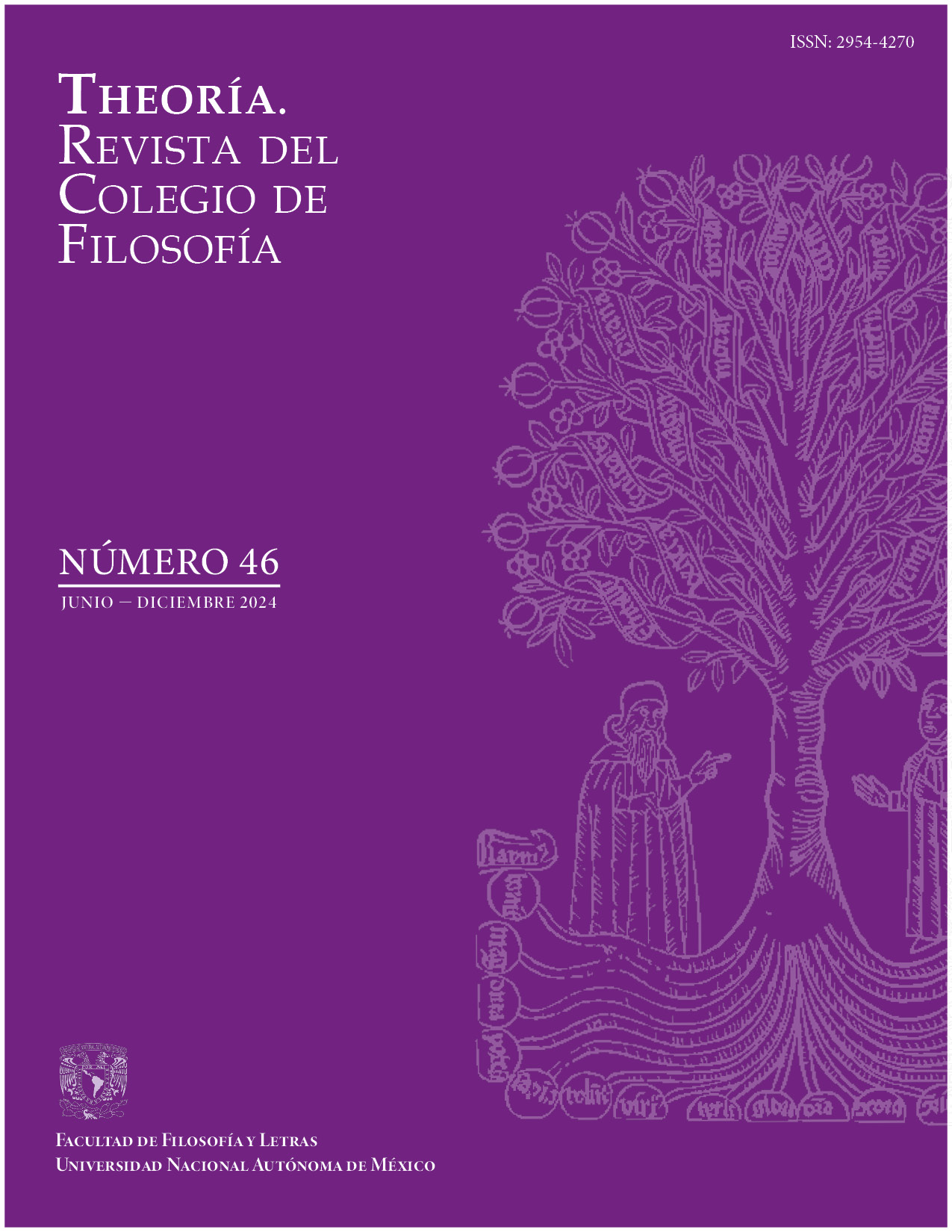The Logic of Artificial Machines
Main Article Content
Abstract
The theory of artificial machines illuminates an epistemic framework for future contingent events such as the encounter with other types of conscious life in the universe, the hypothetical emergence of an artificial self-consciousness or technological singularity. It is an epistemic endeavor that will modify human ethical epistemological frameworks and subject-object relations. This theory explains self-consciousness as an autonomous exchange of signals, communicated physically and symbolically, by means of phenomenal domains shared by autopoietic machines of the same species within the global set of the biosphere, where the total of autopoietic machines evolves through co-emergent relationships. The features attributed to artificial machines depend on the representational availability of human self-consciousness as the only self-referential instance, in an autopoietic machine, involving more freedom of interactions developed in a complex system of self-referential processes. The autonomous causal development of the technological singularity would hypothetically create its own paradigms beyond human values or expectations, where the behavioral mimetic logic would be only a past trace in its transformations that no longer applies to the sustenance of its identity: an epistemic autonomy. However, autonomous updates of technological singularity should follow the Principle of Continuity that determines that all modification in complex systems occurs by degrees of change: a state in the future will be coherent with its development process, necessarily framed by its initial state and trajectory.
Article Details

This work is licensed under a Creative Commons Attribution-NonCommercial-NoDerivatives 4.0 International License.
References
Aristóteles. (1994). Metafísica (Tomás Calvo, Trad). Gredos.
Barad, Karen. (2006) Meeting the Universe Halfway. Duke University Press.
Bergson, Henri. (1941) L’évolution créatrice. Presses Universitaires de France.
Chollet, François. (2019). “The Measure of Intelligence”. https://arxiv.org/abs/1911.01547
Hui, Yuk. (2021) “On the Limit of Artificial Intelligence”. Philosophy Today, 65(2): 339-357. https://doi.org/10.5840/philtoday202149392
Kant, Immanuel. (2009). Kritik der Urteilskraft. Felix Meiner Verlag.
Kurzweil, Ray. (2005). The Singularity is Near. Penguin.
Leibniz, Gottfried. (1996). New Essays on Human Understanding. Cambridge, University Press.
Leibniz, Gottfried. (2017). Sämtliche Schriften und Briefe. Berlin-Brandenburgischen Akademie der Wissenschaften.
Maturana, Humberto; Varela, Francisco. (1980). Autopoiesis and Cognition. The realization of the living. Reidel Publishing Company.
Metzinger, Thomas. (2005). “Précis: Being no one”. Psyche, 11(5), 1-35. https://journalpsyche.org/files/0xaad5.pdf
Metzinger, Thomas. (2007). “Self models”. Scholarpedia, 2(10): 4174. https://doi.org/10.4249/scholarpedia.4174
Metzinger, Thomas. (2015). “M-Autonomy”. Journal of Consciousness Studies, 22(11-12), 270-302. https://www.blogs.uni-mainz.de/fb05philosophie/files/2013/04/Metzinger_M-Autonomy_JCS_2015.pdf
Metzinger, Thomas. (2017), “The Problem of Mental Action - Predictive Control without Sensory Sheets”. Philosophy and Predictive Processing, 1-26. https://doi.org/10.15502/9783958573208
Minsky, Marvin. (1961) “Steps Toward Artificial Intelligence”. IRE, 49(1), 8-30. https://doi.org/10.1109/JRPROC.1961.287775
Ocumetics Technology Corp. (2023, April 15). Recuperado el 2 de septiembre de 2024 de https://ocumetics.com/
Rahwan, Iyad; Cebrian, Manuel; Obradovich; Nick; Bongard, Josh; Bonnefon, Jean-François; Breazeal, Cynthia; Crandall, Jacob W.; Christakis, Nicholas A.; Couzin, Iain D.; Jackson, Matthew O.; Jennings, Nicholas R.; Kamar, Ece; Kloumann, Isabel M.; Larochelle, Hugo; Lazer, David; McElreath, Richard; Mislove, Alan; Parkes, David C.; Pentland, Alex ‘Sandy’; Roberts, Margaret E.; Shariff, Azim; Tenenbaum, Joshua B.; Wellman, Michael (2019). “Machine behaviour”. Nature, 568, 477-486. https://doi.org/10.1038/s41586-019-1138-y
Tomasik, Brian. (2016) “Suffering-Focused Ecocentrism”. Recuperado el 14 de agosto de 2024 de https://briantomasik.com/suffering-focused-ecocentrism/#What_does_an_ecosystem_want
Tononi, Giulio. (2012). Phi. A voyage from the brain to the soul. Pantheon Books.
Tononi, Giulio. (2015). “Integrated Information Theory”. Scholarpedia, 10(1), 4164. https://doi.org/10.4249/scholarpedia.4164
Turing, Alan. (1950). “Computing Machinery and Intelligence”. Mind, a quarterly review of psychology and philosophy. 59(236), 433-460. https://doi.org/10.1093/mind/LIX.236.433
Ulam, Stanislaw. (1958). “John von Neumann 1903-1957”. Bulletin of the American Mathematical Society, 64(3), 1-49. https://www.ams.org/journals/bull/1958-64-03/S0002-9904-1958-10189-5/?active=current
Woese, Carl; Kandler, Otto; Wheelies, Mark. (1990). “Towards a natural system of organisms: Proposal for the domains Archaea, Bacteria, and Eukarya”. Proc. Natl. Acad. Sci, 87,4576-4579. https://doi.org/10.1073/pnas.87.12.4576

